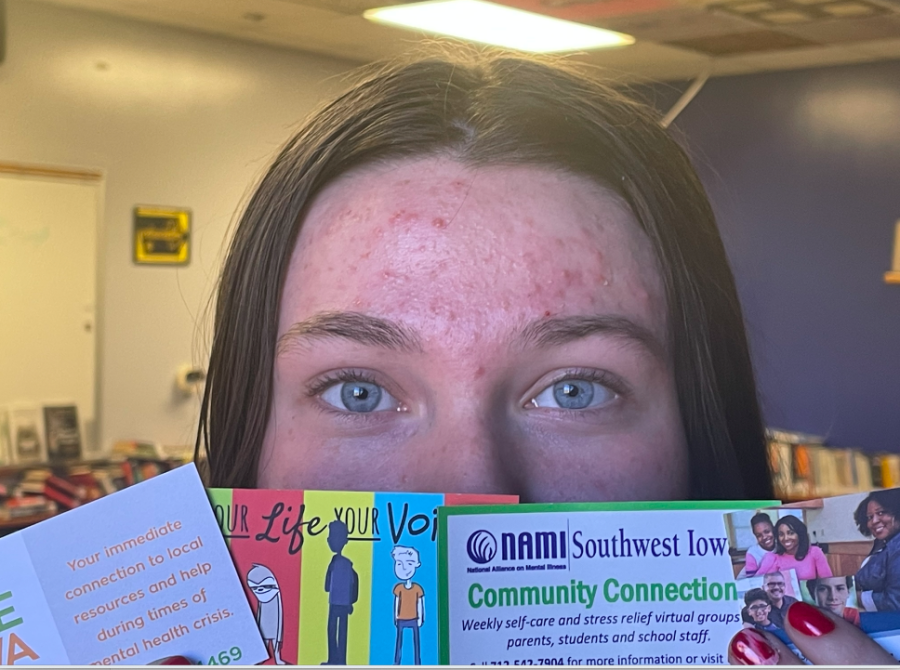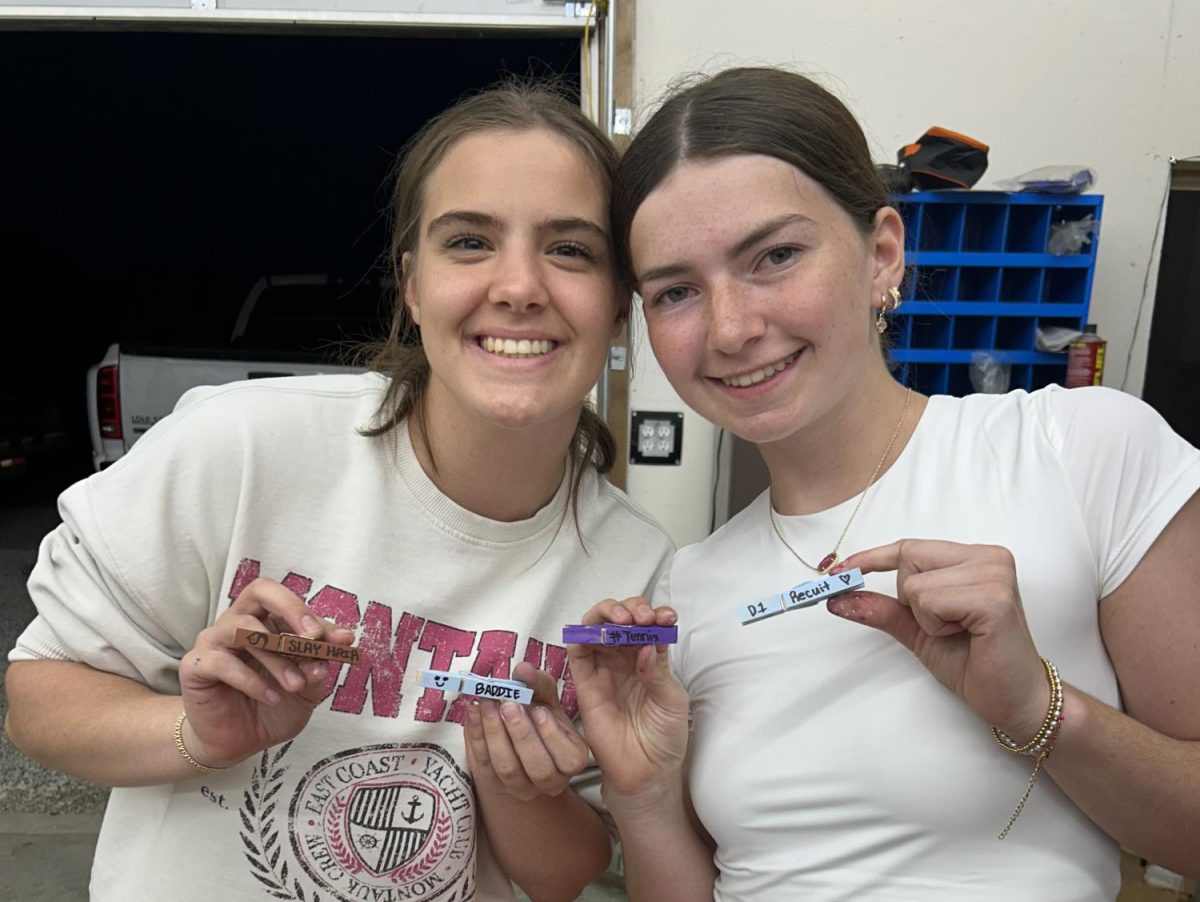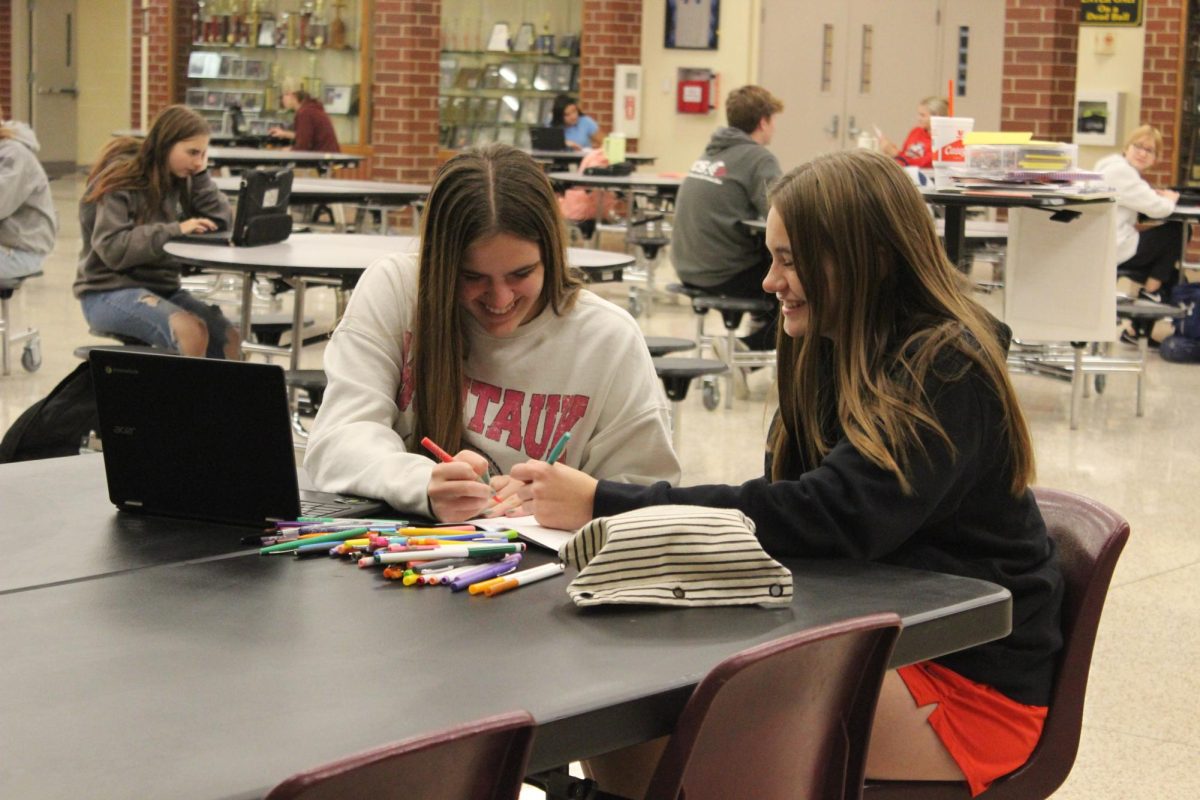Mental Health in Schools
Many students struggle with mental health around the US.
Mental health services strive to connect with those in need. Hotlines, anonymous texts, and face-to-face therapies are available to teens.
January 11, 2022
Forty-three million Americans struggle with mental health, which affects physiological, emotional, and social well-being. It can impact how people think, feel, and act, as well as the choices they make and how they relate to others.
Half of all people who have mental illnesses show early signs before the age of 14 and three-fourths of all people with mental illness show symptoms prior to the age of 24. More than one in four adults struggling with mental health also struggle with substance abuse.
Mental health problems have nothing to do with being lazy, as many would assume. More often than not, mental health is a problem because of brain chemistry, life experiences, and/or substance abuse. Different disorders can include anxiety, depression, bipolar, eating, personality, PTSD, and schizophrenia.
Treatment for mental health is different for each individual. There could be therapy, medication, coping techniques, or all three.
Guidance counselor Sarah Rose voiced that there are options for students who would like counseling. If a student’s parents are opposed to the idea, the counselor would first organize a meeting with the student, the student’s parents, the counselors, and the principal. “This way we can talk about how it’s helpful, the different resources, and clear up any confusion about counseling and help advocate for the student,” Rose said. The school also provides a student assistance program. The student may meet with a counselor over the phone and discuss everything that is bothering them. The school also collaborates with Zion, the police department, different churches, and the hospital.
Trisha Niceswanger is a teacher at AHS who struggles with stress, “especially this year and last year.” Niceswanger said. “I love the Student Assistance Program, it gives the kids a chance to anonymously talk about their struggles. This way when they feel stuck and don’t want to talk to a friend or parent, they have a way to get that off their chest.” Niceswanger likes being able to talk to her co-workers who relate to the stress she’s going through with new technology or even drama around the school.
Niceswanger also said, “I am willing to be that space for the kids. I know some days Spanish is not the most important thing.” She said she is super supportive when kids have the strength to admit going to counseling. “Even celebrities with all their fame and money talk about their bad days and dark times.”
A mother of two AHS students is open about her mental health struggles. When struggling with her mental illness as a teenager, she had no idea how to address issues like her uncontrollable anger. She didn’t even know what coping skills were. She also said, “I felt left in my feelings.”
Her first encounter with mental health was when she was little and saw leprechauns in her bedroom. Her first biggest episode was when she was 22. She said she got into a fight with her boyfriend and was “acting crazy.” She was showing dangerous behavior and threatening to hurt people. “I got in my car and started driving, I drove forever. Nobody knew where I was or what I was doing.” A family member told her that the behavior she was exhibiting was behavior he experienced, he had been diagnosed with various mental health problems. She went to the psychiatric ward to “appease” everyone else. When she was there, she felt sad, mad, and almost like she was “broken.”
Now she sees her med provider every three months, takes medication, and goes to counseling. She copes by using self-talk, journals a lot, reads, crafts, cleaning, and organizing. Cleaning “clears up” her head makes her feel more organized in her brain.









